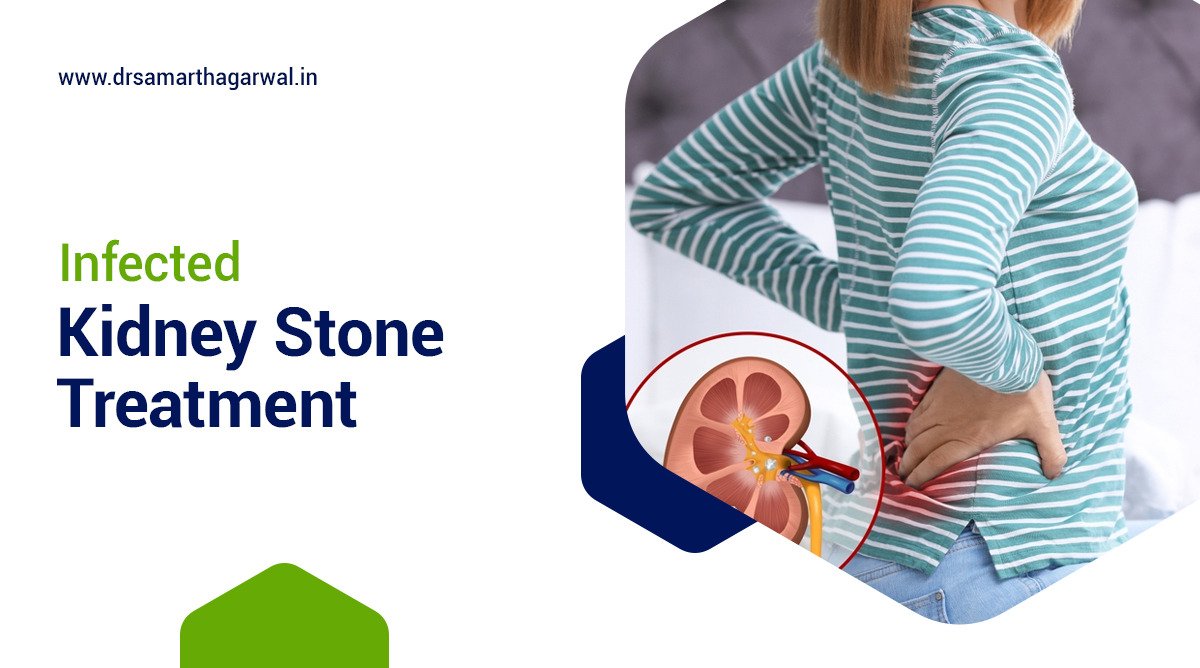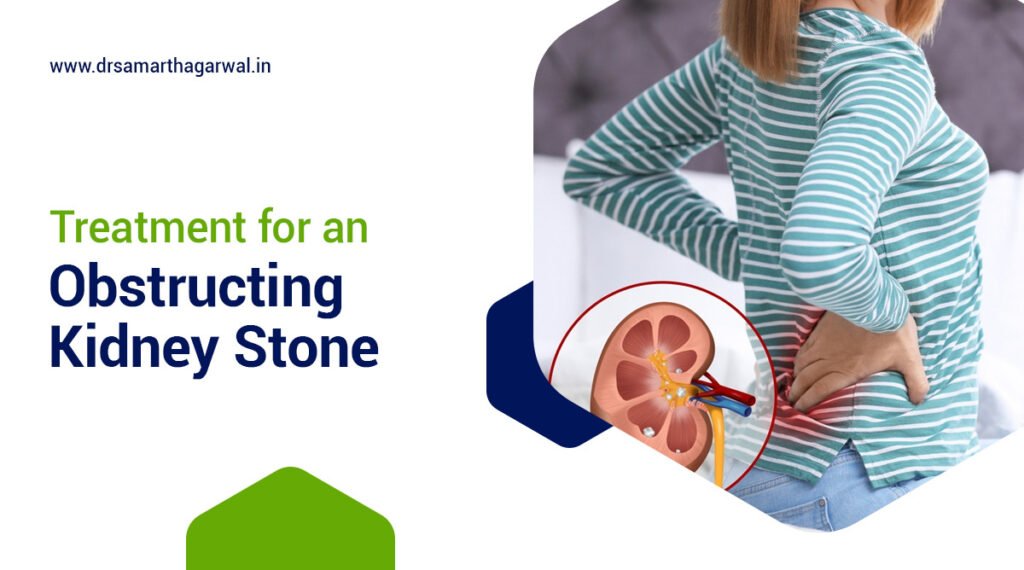Infected kidney stones, also known as infection stones, are a type of kidney stone that forms as a result of urinary tract infections (UT). The primary goal of treatment is to eliminate the stone and eradicate the underlying infection. Prompt treatment is crucial to prevent complications and improve patient outcomes.
The symptoms of infected kidney stones include severe pain, nausea, vomiting, fever, and chills. The causes of infected kidney stones are typically linked to urinary tract infections, with bacteria such as Proteus mirabilis being a common culprit. The benefits of prompt treatment include reducing the risk of complications, alleviating symptoms, and improving quality of life. According to a 2015 paper published in a medical journal by T Marien, the mainstay of treatment of infection stones is complete stone removal, with kidney stones that obstruct the urinary tract and cause obstructive pyelonephritis being the primary target.
The effectiveness of treatment depends on various factors, including the size and location of the stone, the severity of the infection, and the promptness of medical attention. In general, prompt treatment can lead to improved outcomes and reduced morbidity.
How to Treat a Kidney Stone Infection?
To effectively treat a kidney stone infection, it’s essential to prioritize prompt medical attention to eliminate the stone and eradicate the underlying infection.
Here are the key treatments for a kidney stone infection:
- Complete stone removal through surgical procedures or lithotripsy.
- Antibiotics to combat the underlying urinary tract infection.
- Pain management through medication or other interventions.
- Increasing fluid intake to help pass the stone.
- Medications to reduce the risk of stone or to manage underlying medical conditions.
- Behavioral changes, such as dietary modifications, to reduce the risk of future stone formation.
- In severe cases, hospitalization may be required to manage complications or ensure proper treatment.
Remember to consult a urologist for personalized guidance on treating a kidney stone infection.
Do You Need Surgery for an Infected Kidney Stone?
You may need surgery for an infected kidney stone if it is causing severe symptoms, blocking the flow of urine, or causing infection.
Surgery for kidney stones is usually reserved for stones that are too large to pass on their own, cause severe symptoms, or block the flow of urine. The type of surgery depends on the location, size, and composition of the, as well as the individual’s overall health. In some cases, shock wave lithotpsy, a non-invasive procedure, may be used to break up smaller stones. Surgery is necessary if the stone is too large or lodged in the ureter, causing severe pain bleeding, or infection.
The surgical procedure may involve open surgery, laparoscopic surgery, or percutaneous nephrolithotomy, depending on the complexity of the case. In some instances a nephrostomy tube may be inserted to drain the kidney and relieve any blockage. Hospitals with experienced urologists and advanced surgical equipment may also offer robotic-assisted surgery for more complex cases. Your doctor will discuss the best course of treatment with you based on your individual situation.
How Long Does It Take to Recover from Kidney Stone Infection?
The recovery time for kidney stone infection treatment varies depending on the procedure used and the individual’s overall health.
Recovery typically takes around six weeks to allow for internal healing. Most patients will feel better within a few days, but it is essential to avoid lifting, pushing, or pulling objects until the doctor gives the all-clear. For those undergoing surgical procedures like ureteroscopy or percutaneous nephrolithotomy, the recovery time may be longer. Hospital stays usually last one or two nights, and full recovery can take up to six weeks. However, many patients can resume their normal activities within a week.
The size of the kidney stone also plays a significant role in the recovery process. Smaller stones (less than 4 mm) usually pass on their own about 31 days, while larger stones may take longer or require medical intervention. In some cases, large stones may need to be surgically removed.
During the recovery period, patients may experience some discomfort or pain, which can be managed with medication. It’s essential to follow the doctor’s instructions and attend follow-up appointments to ensure a smooth recovery.
Is a Kidney Stone Infection Bad?
Yes, a kidney stone infection poses significant health risks. Kidney stones, particularly when infected, can lead to severe complications including kidney damage. The National Institute of Diabetes and Digestive and Kidney Diseases indicates that obstruction caused by kidney stones can result in kidney infection, which in severe cases, may progress to kidney failure if untreated.
The predominant type of kidney stone, calcium oxalate stones, forms when calcium combines with oxalate in the urine. Insufficient fluid intake can increase the concentration of minerals, making it easier for these stones to form. Uric acid stones, another type, emerge from a high intake of protein foods and insufficient hydration. Cystine stones result from a rare genetic disorder, and struvite stones often develop after urinary system infections.
Patients with a history of kidney stones experience an elevated risk for developing more stones. Factors that increase the likelihood of stone formation include diets high in salt and protein but low in calcium, obesity, certain medical conditions such as diabetes and digestive diseases, and specific supplements and medications.
The treatment for kidney stones varies depending on the size and type of stone but may involve increased water intake, medication, or surgical procedures to remove or break down the stones.
Prevention strategies include consuming enough fluids to produce at least 2 liters of urine per day, limiting salt and high-protein food intake, and maintaining a balanced diet with an appropriate amount of calcium.
What Is the Treatment Procedure for Kidney Stone Infection?
The treatment procedure for kidney stone infection involves a combination of medical therapy and surgical interventions depending on the size, location, and type of stone.
Kidney stone treatment typically begins with medical therapy, which focuses on managing symptoms, preventing further stone formation, and helping the body pass the stone naturally. In this approach, a healthcare professional may recommend drinking plenty of fluids, taking pain relief medication, and using anti-sickness medicine to alleviate symptoms. Additionally, alpha-blockers may be prescribed to help the stone pass more easily. In some cases, a healthcare professional may also recommend a non-steroidal anti-inflammatory drug (NSAID) to help with pain management.
For larger stones or those that are causing urinary tract blockages, surgical interventions may be necessary. One common surgical procedure is percutaneous nephrolithotomy (PCNL), where a small incision is made in the back and a nephroscope is inserted through the incision to remove the stone. Another option is extracorporeal shock wave lithotripsy (ESWL), which uses shock waves to break the stone into smaller pieces that can then be passed out of the body. Ureteroscopy is another minimally invasive procedure that involves using a ureteroscope to remove the stone from the ureter. In some cases, open surgery may be necessary, especially for larger stones that are causing significant blockages.
In all cases, it is essential to work closely with a healthcare professional to determine the most appropriate treatment approach based on the individual’s specific needs and medical history.
Below is a table displaying treatment options for infected kidney stone:
| Treatment Procedure | Description | Used For | Hospital Stay | Recovery Time |
| Percutaneous Nephrolithotomy (PCNL) | Small incision in, nephroscope inserted to remove stone | Large stones, kidney stones that obstruct urine flow | 1-2 nights | 1-2 weeks |
| Ureteroscopy with Holmium Laser Lithotripsy | Small scope inserted through urethra to break up stone | Small to medium-sized stones in ureter | 1 night | 1-2 weeks |
| Shock Wave Lithotripsy (SWL) | Non-invasive, uses shock waves to break up stone | Small to medium-sized stones in kidney or ureter | Outpatient | 1-2 days |
| Open Surgery | Traditional surgery to remove stone | Large or complex stones, failed SWL or ureteroscopy | 2-5 nights | 4-6 weeks |
| Medication (e.g., allopurinol) | To reduce uric acid levels and prevent future stones | Uric acid stones, prevention of recurrent stones | N/A | N/A |
Note: The hospital stay and recovery time may vary depending on individual circumstances and the specific treatment procedure used.
Can Kidney Stones Go Away on Their Own?
Yes, kidney stones can go away on their own. Kidney stones are aggregations of mineral-based crystals that develop within the urinary system. These stones can form when substances in the urine, such as minerals, accumulate and solidify.
While they can be very painful, most stones will pass out of the body in the pee on their own, especially smaller stones that are less than 4 millimeters in size. In fact, around 80% of kidney stones can pass on their own.
The amount of time it takes for you to pass a kidney stone depends on its size and location. Small stones usually take an average of 31 days to pass, while larger stones may take longer or require medical treatment. However, even small stones can take weeks to months to pass. It’s essential to follow up with a healthcare provider if you don’t pass the stone within four to six weeks.
If the stone is large or causing a blockage, medical intervention may be necessary. A doctor may recommend pain relief medication, anti-sickness medicine, and alpha-blockers to help the stone pass more easily. In some cases, surgical interventions like percutaneous nephrolithotomy (PCNL), extracorporeal shock wave lithotripsy (ESWL), or ureteroscopy may be necessary to remove the stone.
Can I Live a Normal Life with Kidney Stones?
Yes, you can live a normal life with kidney stones. Managing this condition involves understanding the type of kidney stone, such as calcium stones or calcium phosphate stones, which are the most common types of stones in the kidney. Treatment for kidney stones aims to relieve symptoms, remove the kidney stone, and prevent recurrence.
The diagnosis and acute management of kidney stones require medical evaluation to determine the exact nature and size of the stone. Small kidney stones often pass through the urinary tract on their own, causing minimal symptoms. However, a large kidney stone may block the flow of urine and necessitate medical intervention to break or remove the stone.
Drinking enough fluids considerably reduces the risk for kidney stones, as dehydration is a key factor that can increase your risk. Furthermore, specific lifestyle changes and medical treatments can help prevent the recurrence of kidney stones, addressing the recurrence of kidney stones effectively.
The causes of kidney stones vary, yet a significant factor includes a diet high in salt and not drinking enough fluids, which can lead to the formation of stones in adults. Kidney stones’ symptoms include severe pain, blood in the urine, and nausea, which require prompt diagnosis and acute management for relief.
To reduce the increased risk of kidney stones, modifications in diet and hydration levels are essential, along with medical therapies that can alter the environment in which stones form. Thus, with appropriate diagnosis, treatment, and preventive strategies, individuals with kidney stones can lead normal, healthy lives.
Can You Prevent Kidney Stones?
Preventing kidney stones requires a combination of dietary changes, lifestyle modifications, and medical interventions. Drinking plenty of water is essential to prevent kidney stone formation, as it helps to dilute the concentration of minerals in the urine.
The recommended daily fluid intake is 2-3 quarts to ensure that you urinate frequently and prevent the formation of stones. Additionally, a dietitian can help you make necessary changes to your diet and lifestyle to prevent kidney stones.
Eating a balanced diet that is low in salt, sugar, and animal protein can help reduce the risk of kidney stone formation. It is also important to limit foods high in oxalate, such asets, chocolate, and spinach, as they can increase the risk of calcium oxalate stones. Maintaining healthy weight and staying physically active can also help reduce the risk of kidney stone formation.
Furthermore, managing underlying medical conditions, such as high blood pressure, diabetes, and obesity, can also help prevent kidney stones. If you have a family history of kidney stones, it is essential to consult with a professional to develop a personalized prevention plan.

Contact Dr. Samarth Agarwal if you have any questions or concerns about your Urinary health!





